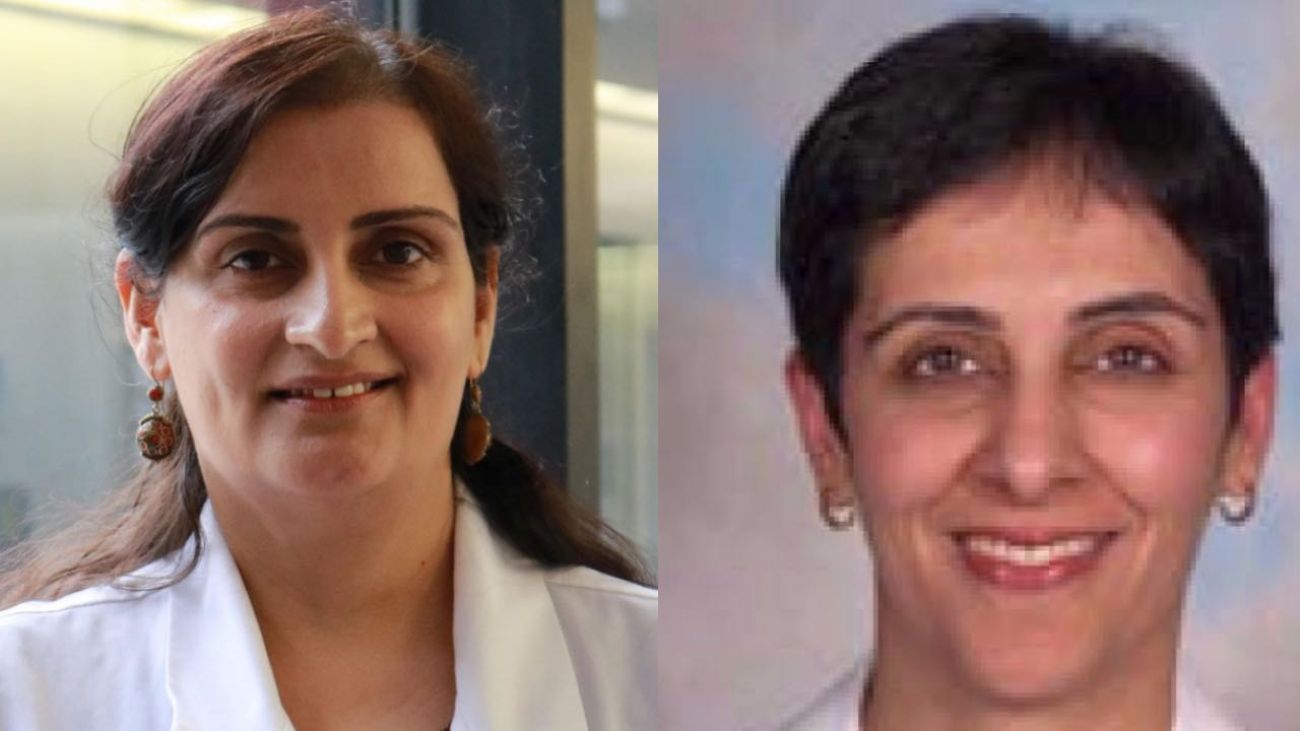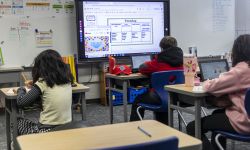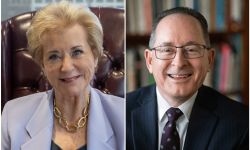Opinion | Lessons from India help us fight coronavirus in Detroit, Seattle

As front-line medical workers, our battle with COVID-19 is personal.
We are physicians and sisters, waging war against an enemy that caught us defenseless. As we helped our communities plan for battle in two U.S. hotspots, we’ve drawn strength from reminiscences of our childhoods.
We are inspiring each other to relentlessly protect the well-being of our patients and communities. One in Seattle, which saw the first COVID-19 case in the United States in a situation that escalated quickly, and the other in Detroit, which has faced a tsunami of cases and become one of the nation’s epicenters.
Being from a developing country has never been more relevant for us than today, when we are in the midst of a colossal collision with COVID-19.
Our childhood brims with stories of our grandfather, a physician, whom we never saw. Our grandmother painted vivid pictures through her stories of her husband, a man passionate about medicine.
Dr. Harnam Singh lived in Amritsar (a city in Punjab, India, famous for the Golden Temple). A man of poor means, he struggled to provide for a family of eight, to pursue medical school, and work part time. My unlettered grandma knew about the Hippocratic Oath, which her husband proudly displayed in the living room and followed religiously. As the first physician in his community, he was a comfort and an inspiration for many.
Dr. Singh’s devotion to his calling was tested during a cholera epidemic that hit India in 1945. This came at a time when the country was breaking out into communal riots. His poor community, already oppressed, was jolted hard. The deadly epidemic was sweeping through a community that was deeply divided along Hindu-Muslim lines.
The communal divide impeded delivery of already meager resources. As death rates climbed, Dr. Singh, the only physician in a 50-mile radius, did what he knew best. He sneaked out at nightfall, escaping the rioters, performing house calls on the sick, then returning home at dawn to spend the day making rehydration solution at home.
Our grandma would assist him, preparing the lifesaving intravenous solution which he would then administer to patients at night. His heroic efforts reached across lines of religion and prevalent prejudices, and he saved human lives. Disregarding his own safety, he was a beacon of hope for many. His family, along with him, were living the spirit of the Hippocratic Oath.
Dr. Singh’s story is inextricably interwoven in the fabric of our family, provoking awe and admiration for a man we never saw, but who inspired us to pursue medicine with the same vigor and tenacity.
We draw from his story as we navigate the COVID-19 outbreak.
Unusual times call for unusual measures. Modern medicine, heavily reliant on advanced diagnostics and equipment, is having to reorganize and return to the basics. With imaging (and lab diagnostics) often unavailable, physicians are having to rely in large part on their clinical judgment to treat patients.
“The eye sees what the mind knows,” is the mantra our grandfather stood by and we must, too.
Our medical school training was in a developing country. A poorly funded health system, devoid of high-tech resources and inadequate lab diagnostics, made us students stretch our clinical acumen. This ability to accept the challenges of an adverse situation has empowered us today to help our patients even with limited resources.
India’s efforts at polio eradication during our training taught us the critical virtue of thinking unconventionally.
Underserved populations, with a deep mistrust for the medical profession, avoided vaccinating their kids. We tried to bridge the gap by going to them. As medical students, we went into neighborhoods, knocking on every door, establishing bonds with families and convincing them to immunize their children. Ninety-five percent of the time, we walked out, having successfully administered the oral polio vaccine and being treated to a warm cup of tea.
We stood outside bus and railway stations, schools, community centers and grocery stores educating people and giving the vaccine. India was able to eradicate polio in 2014 despite the adversity of an enormous population, illiteracy and severe lack of resources.
We draw from this experience as we individually endeavor to reach out to communities, answer questions, quell panic and raise awareness about basic measures such as hand hygiene and social distancing.
As doctors around the world go above and beyond the boundaries laid by governments and administrators to serve, my grandfather’s legacy lives on in the ethics we uphold. We look up to the values he stood for and to his exemplary devotion to his profession and community. We imbibe his commitment to the Hippocratic Oath to which we have pledged ourselves.
See what new members are saying about why they donated to Bridge Michigan:
- “In order for this information to be accurate and unbiased it must be underwritten by its readers, not by special interests.” - Larry S.
- “Not many other media sources report on the topics Bridge does.” - Susan B.
- “Your journalism is outstanding and rare these days.” - Mark S.
If you want to ensure the future of nonpartisan, nonprofit Michigan journalism, please become a member today. You, too, will be asked why you donated and maybe we'll feature your quote next time!



